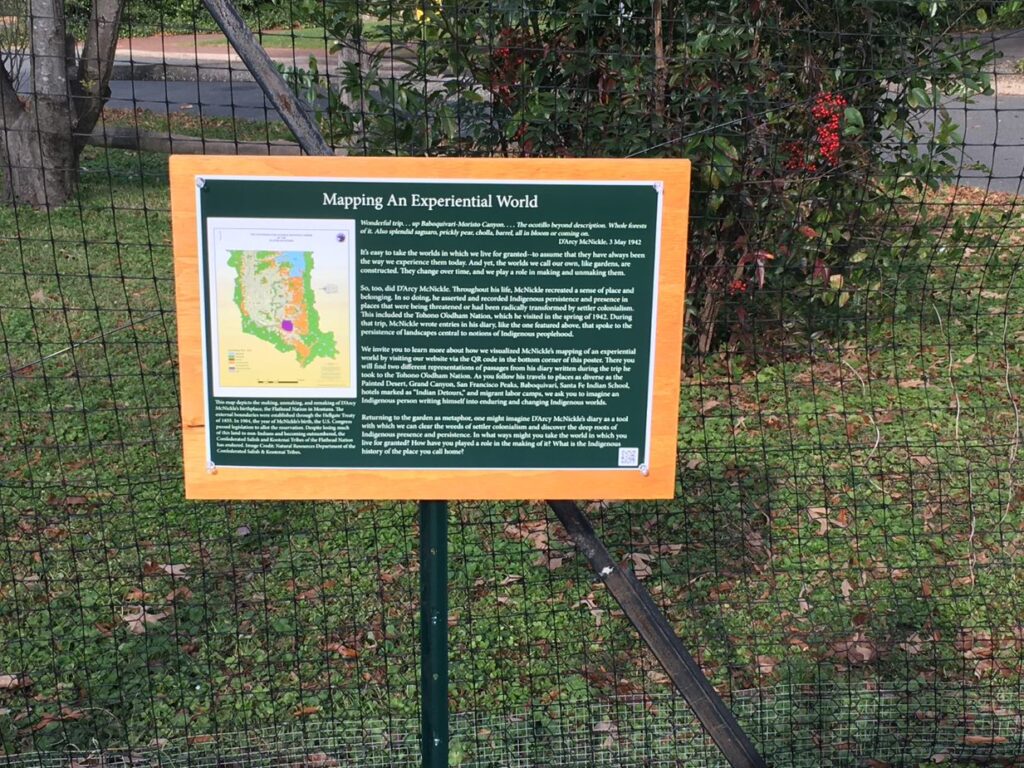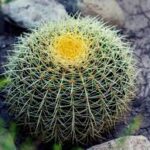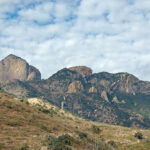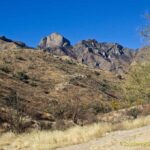Mapping An Experiential World
Wonderful trip. . . up Baboquivari-Moristo Canyon. . . . The ocotillo beyond description. Whole forests of it. Also splendid saguaro, prickly pear, cholla, barrel, all in bloom or coming on.
D’Arcy McNickle, 3 May 1942
It’s easy to take the worlds in which we live for granted–to assume that they have always been the way we experience them today. And yet, the worlds we call our own, like gardens, are constructed. They change over time, and we play a role in making and unmaking them.
So, too, did D’Arcy McNickle. Throughout his life, McNickle recreated a sense of place and belonging. In so doing, he asserted and recorded Indigenous persistence and presence in places that were being threatened or had been radically transformed by settler colonialism. This included the Tohono O’odham Nation, which he visited in the spring of 1942. During that trip, McNickle wrote entries in his diary, like the one featured above, that spoke to the persistence of landscapes central to notions of Indigenous peoplehood.
We invite you to learn more about how we visualized McNickle’s mapping of an experiential world by visiting our CLIO-VIS and Google Earth projects. There you will find two different representations of passages from his diary written during the trip he took to the Tohono O’odham Nation. As you follow his travels to places as diverse as the Painted Desert, Grand Canyon, San Francisco Peaks, Baboquivari, Santa Fe Indian School, hotels marked as “Indian Detours,” and migrant labor camps, we ask you to imagine an Indigenous person writing himself into enduring and changing Indigenous worlds.
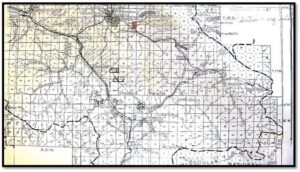
Returning to the garden as metaphor, one might imagine D’Arcy McNickle’s diary as a tool with which we can clear the weeds of settler colonialism and discover the deep roots of Indigenous presence and persistence.
In what ways might you take the world in which you live for granted? How have you played a role in the making of it? What is the Indigenous history of the place you call home?
Contributors: Nicole Boncimino, Molly Frye, Chetan Gongidi, and Nicole Tamol
Original Text: Mackenzie Collura-Repp and Professor Dan Cobb

